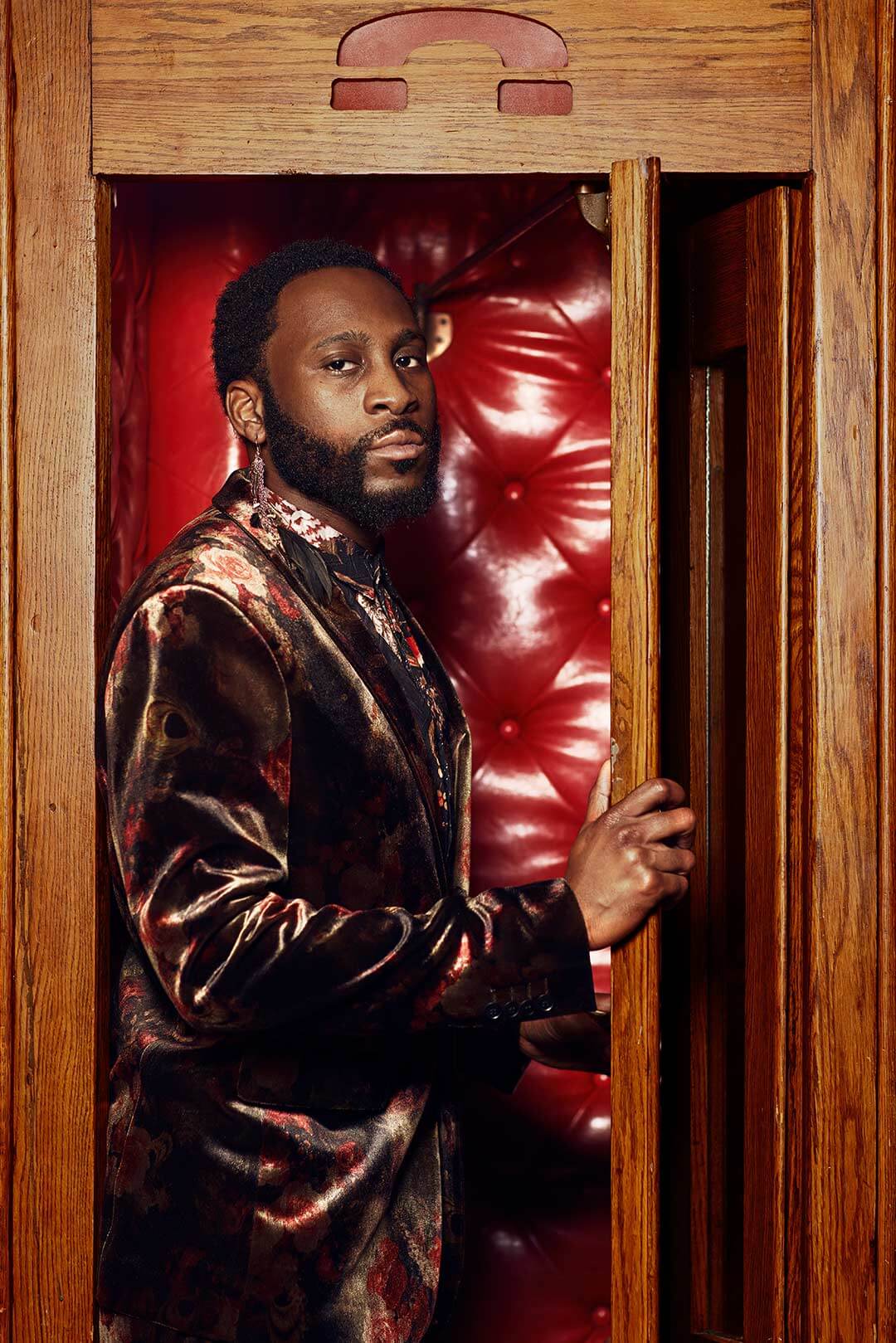- October 16, 2019
- By Jessica Weiss ’05
From the writing of Langston Hughes and Zora Neale Hurston to the music of Louis Armstrong and Bessie Smith, some of the most cherished art in American history came out of a single neighborhood: Harlem. An explosion of creativity in the early 20th century, dubbed the Harlem Renaissance, reverberated across the country and remains a mark of progress in the halting journey toward racial equality.
A century later, the sights and sounds of the era return to the stage in a multimedia art experience and musical journey tomorrow at the Clarice Smith Performing Arts Center, featuring the Harlem-based band Mwenso and the Shakes and guests.
“This is an African American story,” said frontman and vocalist Michael Mwenso. “Black people created this sophisticated, refined body of work, and this is music that we’re very connected to, that we’ve been saturating ourselves in for our entire lives.”
 During his visit, Mwenso will also speak to students in a School of Music class and present a version of the performance to 500 Prince George’s County Public Schools students.
During his visit, Mwenso will also speak to students in a School of Music class and present a version of the performance to 500 Prince George’s County Public Schools students.
Mwenso calls "Harlem 100" a “modern variety show” and says it reflects the band’s long-standing love for New York’s creative heyday. Members of Mwenso and the Shakes—vocalist Vuyo Sotashe, drummer Kyle Poole, guitarist Gabe Schnider, pianist Mathis Picard, saxophonists Ruben Fox and Julian Lee, bassist Russell Hall, and tap dancer Michela Marino Lerman—hail from Europe, Africa, the Caribbean and the United States, but all now reside in Harlem.
“You’re going to see and hear songs that are famous and connected to that time, but the music will bring a modernistic quality, from rhythm and blues to funk,” he said. “It’s a unique take.”
Mwenso was born in Sierra Leone and grew up in London, where he discovered his love for jazz. As a teen, he played with legendary musicians like Wynton Marsalis and James Brown and began touring and leading his own bands. In late 2010, at Marsalis’ invitation, Mwenso joined the programming team at Jazz at Lincoln Center in New York began to run the After-Hours program at Dizzy's Club Coca-Cola. That led to the Shakes.
Even though Harlem has changed dramatically in the last 100 years, Mwenso still feels a spiritual connection to his musical ancestors, which informs his art.
“Sometimes I still find myself at 1 a.m. walking past Duke Ellington’s house, or Langston’s house, and getting emotional,” he said.
Mwenso will speak today to 60 students in the course “Exploring the Power of Musical Performance in Social Engagement” about his creative process and the ways he engages diverse audiences.
Lee Hinkle, a School of Music lecturer who teaches the course, said it’s a rich opportunity for students to learn more about the profound way music can impact social and political movements, especially given that the nation continues to grapple with racial injustice.
“Music can be a powerful tool to remember an event like that,” Hinkle said, to “remember what happened before and see how far we’ve come, but also to reflect on issues that are still going on.”
